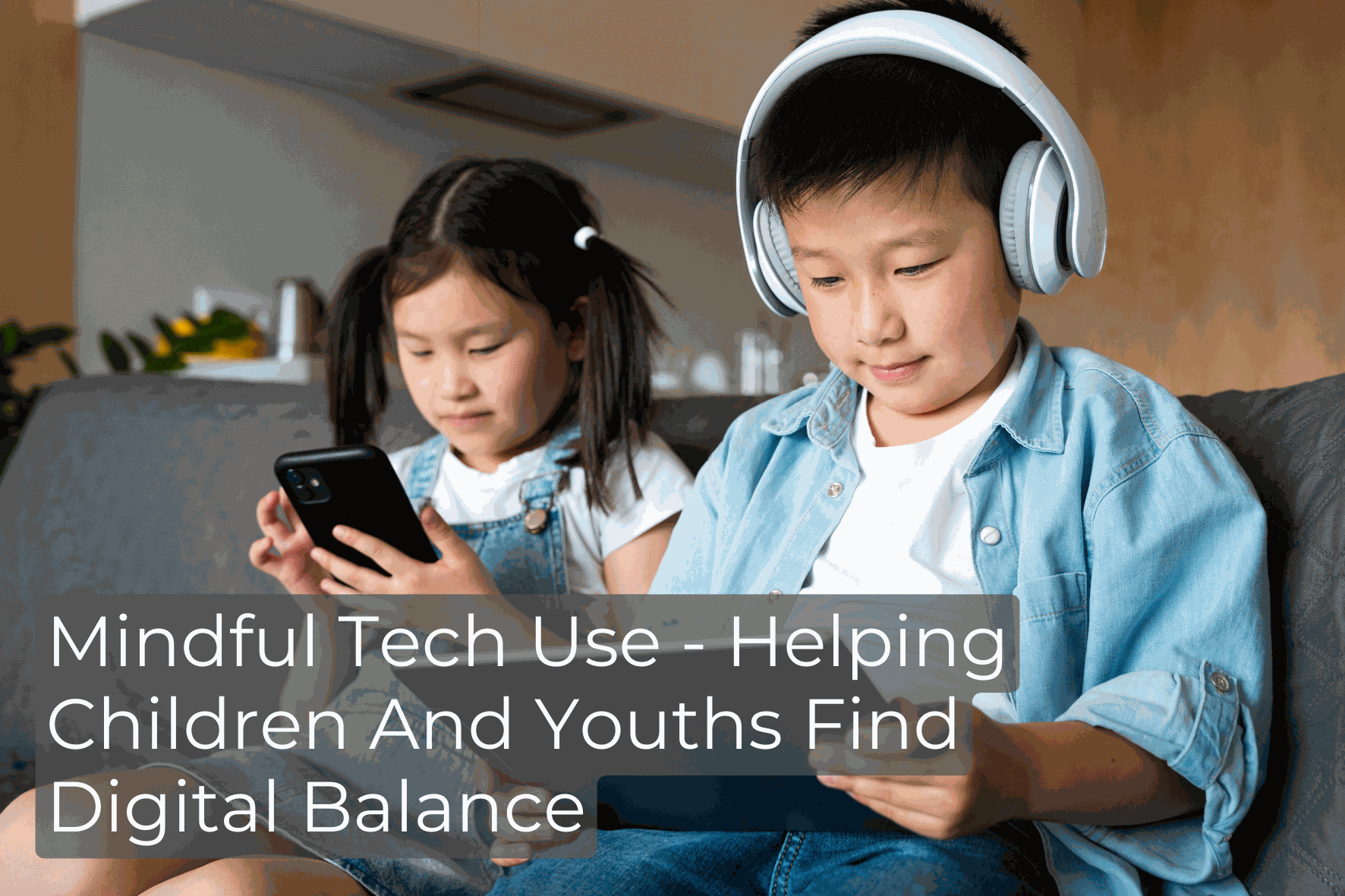Mindful Tech Use: Helping Children & Youths Find Digital Balance

In today’s digital age, screens are part of everyday life.
They connect us to learning, entertainment, and friends, and that’s great when used mindfully. But too much screen time can also lead to worry, pressure, or stress, especially in young ones.
You would probably have seen this scenario at a hawker centre or a restaurant: You’re waiting for food, and you see people around you, young and old, with their heads down and scrolling through their phones. It’s a common sight, but it can also mean we’re missing out on being present together.
So, how do we help our Children use screens wisely? The key is balance. Buddhist teachings remind us of the Middle Way - avoiding extremes. It’s not about banning screens or letting them control us. Instead, we learn to use them with care and intention.
Screens: The Good, and the Not-So-Good
The truth is, screens are not inherently bad. They are tools that provide many benefits when used properly. But, there is a downside when usage becomes compulsive and interferes with sleep, mood, school, or real-life relationships.
Here’s a quick look at from a source by Children’s Hospital of Orange County (CHOC), at how screen time can help or hurt across different age groups:
Age Group | Benefits (when balanced) | Risks (when excessive) |
Babies & Toddlers (0-3) | Video chats with family; simple apps to learn numbers and letters | Delayed speech, sleep trouble, poor eye development |
Young Children (4-12) | Educational apps, school videos and lessons, creative games | Attention issues, less outdoor play, increased tantrums when devices are removed |
Teenagers (13-18) | Social connection, research, skill-building (coding, design, music etc) | Anxiety, cyber-bullying, FOMO, disrupted sleep, body-image concerns |
Screen time isn’t all the same as educational screen time could potentially enhance mental health. However, too much unstructured screen use, like endless videos or games, has been associated with delayed language development in toddlers and behavioural issues in older Children. That’s why setting healthy boundaries early is essential.
The Benefits of Healthy Boundaries
Studies show excessive screen use has been linked to anxiety, depression, and attention issues. But screens aren’t the problem; it’s how we use them. Since screens are here to stay, a balanced approach can bring several benefits, like:
Improved mental health: Reduced anxiety and stress
Better sleep: Less exposure to screen glare before bedtime
Stronger social skills: More real-world, face-to-face interactions
More quality family time: More presence and less distraction
We can help our Children by:
Choosing educational or creative apps
Encouraging them to stop scrolling before bed
Using screen time together to experience and reflect
We want to empower our children and youths to use screen time wisely and ensure they aren't controlled by them.
Why Parents Matter Most
Parents are the primary role models for their children, and Children learn by observing their actions. If we're always on our phones at dinner or checking emails first thing in the morning, they will notice and copy our behaviours. Instead, show them the importance of balance - reading, talking, and playing together. If we want our children to have less screen time, we must also practice it, because how we behave speaks louder than what we say.
Parents who set mindful boundaries instead of strict rules tend to achieve better results. Here are some practical tips for role-modelling:
Family Tech Rules
Create a charging station in the living room where everyone (parents, too!) can park their phones at bedtime.
Screen-Free Rituals
Go screen-free during dinner, story time, or a family morning walk to bond over honest conversations instead. This fosters connection and improves family relationships.
Use Tech Together
Instead of banning games, join in. Ask your child to teach you how they play. It’s a great way to show interest, stay connected, and talk about what feels fun or draining.
Praise Positive Digital Actions
When your teen puts the phone away to focus on homework, notice it and say something encouraging. A little praise goes a long way than constant reminders.
In Buddhism, this kind of steady support is called being a virtuous friend on the path. And that’s really what parents are: the child’s first real friend, showing up, guiding gently, and building trust along the way.

